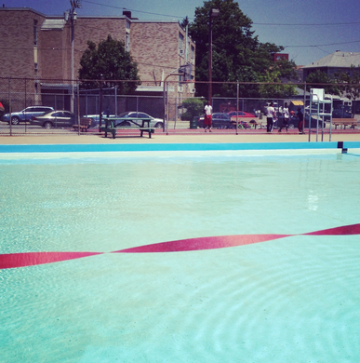Whitcomb: Rinks, Roads and Bathrooms; Putting on the Old Ritz; Dictators’ Delight; Grave Matters
Sunday, November 21, 2021
“And thank you very kindly for this visit—
Especially now when all the others here
GET THE LATEST BREAKING NEWS HERE -- SIGN UP FOR GOLOCAL FREE DAILY EBLASTAre having holiday visitors, and I feel
A little conspicuous and in the way.
It's mainly because of Thanksgiving….’’
-- From “The Transparent Man,’’ by Anthony Hecht (1923-2004), a U.S poet laureate and Pulitzer Prize winner.
“Corporation, n. An ingenious device for obtaining individual profit without individual responsibility.’’
-- Ambrose Bierce (1842-1914(?)), in his The Devil’s Dictionary. In 1913, Bierce told reporters that he was traveling to Mexico to gain first-hand experience of the Mexican Revolution. He disappeared and was never seen again.
xxx
November is usually a gloomy month but the growing season is over so you don’t have to feel guilty about not pulling weeds or trimming the shrubs. Our little water feature, with a lonely water lily, finally froze. It’s “The End” for this season.
Why don’t friends and families decide to establish their own, and perhaps moveable, Thanksgiving Days instead of herding themselves onto packed highways and into jammed planes, some with “Libertarian’’ psychotics, to travel to have a heavy meal on a dreary November Thursday afternoon? Why are they such lemmings?
I think a lot of this is due to advertising, which promotes the idea, and associated guilt, that everyone should celebrate Thanksgiving and spend as much money as possible doing it – and then fork out some more the next day -- “Black Friday.’’
Where to Spend?
Of course, there’s plenty of dispute about where to target money from the $1.9 trillion American Rescue Plan Act (ARPA), the economic-stimulus measure enacted last March to counteract the effects of the pandemic, and not to be confused with the $1.1 trillion physical-infrastructure bill signed into law last week.
Now that the ARPA money is apparently finally getting out there, there’s the inevitable squabbling about priorities. Perhaps most famously at the moment around here is the fight over whether to spend $250,000 on a skating rink in Woonsocket. I say: Why not a rink? It’s a poor city whose kids don’t have all that many recreational facilities. Spending $250,000 for a rink would improve public health and morale. Or maybe CVS, the huge and immensely profitable (at least until Amazon eats it) drugstore chain based in Woonsocket, could build a rink. Good PR! Or maybe one of CVS’s very rich senior executives could pay for it as an admirable civic act, without affecting his or her standard of living. And then run for office!
A public swimming pool would be nice, too.
Such facilities are common in Western Europe, but not in America, where poverty/squalor and extreme private wealth behind higher and higher walls co-exist uneasily. In our middle-class (not rich) neighborhood in Paris there were three well-maintained and heavily used public (government-funded) swimming pools in a six-block radius of our apartment.
Of course, most of the federal money should go for such basics as fixing roads, sidewalks and bridges, improving public transportation for the many people who can’t drive (too poor to own a car, or health issues, such as simple aging) and repairing public buildings such as schools. You’d want to concentrate on stuff that the largest number of people would need and use.
Might some of the new cash from the Feds go into building the exciting proposed new transportation hub in downtown Providence, which would be away from the current rather chaotic hub at Kennedy Plaza?
Then’s there’s the need for more housing. So some towns and cities could convert old schools and commercial buildings into temporary or permanent dwellings. (In the long run, though, changing zoning laws (e.g., weakening “snob zoning”) to allow more density might be the most forceful way to address the housing crisis, much of which stems from a simple lack of supply, which drives up housing costs. It’s gotten too difficult to build housing for poor and middle-class people in America.
And America has very few public bathrooms, indeed the fewest per-capita in the developed world. This is a public-health and quality-of-life issue. Wouldn’t it be nice if some of the federal largesse went to that?
Bloomberg News reports:
“According to a ‘Public Toilet Index’ released in August 2021 by the U.K. bathroom supply company QS Supplies and the online toilet-finding tool PeePlace, the U.S. has only eight {public} toilets per 100,000 people overall — tied with Botswana. (Iceland leads their ranking, with 56 per 100,000 residents.)
Bloomberg has a useful history of America’s public-bathroom desert. Hit this link to read it:
You’d think that there would at least be plenty of rest stops with proper bathrooms (not Porta Potties) along interstate highways. But some states have few or none (Rhode Island). And so people go into the woods in rest stops without facilities. In some places these stops become sites for illicit sexual, drug or other creepy activities. Let’s hope that at least the infrastructure bill addresses some of this squalor. Other countries, by the way, are putting up self-cleaning toilet sheds.
Finally, let’s not forget to help public libraries, those “free schools” for everyone. They provide rich sources of learning and recreation and most are grossly underfunded. Real literacy has been declining in America and disinformation and misinformation rising, hurting our civic life in innumerable ways. Expanded local library services can help counteract that. And libraries can be attractive public meeting places and expert-speaker venues.
By the way, thank God that the incoherent and never enacted Trump mess of infrastructure ideas never became law. A lot of this would have been “public-private” deals that would have ended up as more welfare for the rich – such as the once-ballyhooed Trump “opportunity zones,’’ allegedly meant to spiff up poor neighborhoods, but that are taxpayer-subsidized bonanzas for rich real-estate developers.
The Inflation of Inflation Worry
Even as citizens complain about the inflation caused by national and international dislocations from the pandemic and the bounce back from it, consumer retail spending has been jumping. Americans buy, buy, buy. But their biggest complaint is high gasoline prices, which are, however, not as lofty as in some previous surges. That many Americans insist on driving huge, gas-guzzling SUVs and live in sprawling exurbs and suburbs where you have to drive miles to buy a gallon of milk drive up demand.
On Nov. 11, the average price for regular gasoline in America as a whole was $3.388 a gallon, up 21 cents from last month and up nearly $1.25 from a year ago, according to GasBuddy data. The highest recorded average for the U.S. as a whole was set on July 16, 2008 (when G.W. Bush was president) at $4.103. That was right before the Great Crash and Recession of 2008-09.
The information here gives some historical perspective:
Putting on the Former Ritz
I spent last Tuesday evening at the Newbury Hotel (the original part of which opened in 1927), the swanky establishment in Boston’s Back Bay that some of us still call The Ritz-Carlton or just The Ritz. I thought that the evening, to which I was invited by a couple of Boston friends (thank God I wasn’t charged for it) would include a tour of the hotel, but in fact, it was mostly pleasant if noisy cocktail party in the fancy Italian fashion store in the hotel called Zegna, part of the Milan-based company of that name. Zegna makes very well-made stuff that few can afford.
Drinks were followed by dinner, with many small plates of (I think) northern Italian cuisine, in the rooftop restaurant called Contessa. The joint has spectacular views of the increasingly Manhattanized Downtown Boston skyline. The often clear and windy atmosphere of late fall and winter provides the year’s most spectacular nightime views of Boston and New York.
In Contessa, a hip great-grandson of the company founder promoted the company as being very “green,’’ touting among other things its spectacular nature preserve in the Piedmont region of northern Italy. When it comes to promotion, it’s hard to beat wrapping yourself in green, especially if you’re running a high-end company. Rich people like to consider themselves environmentalists, especially when it comes to protecting land from development near their suburban or rural estates!
I had almost forgotten how noisy such events can be, with the chattering getting louder and louder as second and third drinks were consumed. Lots of quick, superficial friendliness even as some party-goers (social X-rays?) relentlessly sought out the most “important’’ people while trying to politely detach themselves from those they feared might be nonentities or just boring. Tom Wolfe would have enjoyed it.
“Who are these people, and what do they want?’’ I kept asking myself, before skulking off to a corner and glancing at a magazine (not Vogue) for a quiet moment.
The Newbury, overlooking the beautiful Public Garden, had quite a colorful reputation as the Ritz-Carlton, both as place for Proper Bostonians to celebrate special events and for the glitz that came from it being for decades a popular place for Hollywood and Broadway celebrities to stay (and sometimes be outrageous in).
It had its own ways.
There was a sign that said “not an accredited egress”’ over one of the doors in the lobby and a strict dress code. More than half a century ago, soon after I landed a job as a reporter and writer at the now-long-dead Boston Herald Traveler, and feeling flush with my $175-a-week salary, I took a girl for a drink in the famous (especially for celebrated writers) ground floor bar of the hotel, whose windows looked out on the Public Garden, a view that at night curiously made it seem that the drinkers were in a bluish underwater chamber.
We ordered our drinks and enjoyed them and the salted peanuts, probably from S.S. Pierce, that purveyor of food, some of it exotic – rattlesnake meat! -- to affluent New Englanders, especially WASPs. But then, our waiter bent down and murmured in my ear: “I’m sorry, Sir. But this will have to be the last drink. The lady is not properly attired.’’ The problem was that she was wearing pants and not a dress or a skirt. But of course, back then, people could smoke away to their lungs’ discontent in bars. Some things were a lot looser then.
Years before that, when someone took me as a kid to the grand and very formal dining room, I was impressed that they served unsalted butter, which seemed very exotic to my untrained palate.
Ah, old Boston….
The Advance of Autocracy
Anne Applebaum, the essayist and historian, analyzes, in an Atlantic magazine (December issue) cover article, the growing power of autocracy in today’s world, in which an insatiable lust for money, luxury and power are what counts, not ideology.
The headline for the article says accurately it “exposes the conditions that have allowed the leaders of Venezuela, Belarus, Russia, China, and Turkey to thrive––at the expense of the world’s liberal democracies.’’ The conditions include the fact that some amoral big American companies are enablers.
‘Nowadays, autocracies are run not by one bad guy,’’ she writes, “but by sophisticated networks composed of kleptocratic financial structures, security services (military, police, paramilitary groups, surveillance), and professional propagandists. The members of these networks are connected not only within a given country, but among many countries. The corrupt, state-controlled companies in one dictatorship do business with corrupt, state-controlled companies in another.’’
These cynical and kleptocratic thugs closely cooperate with each other to squash democratic movements within their own countries and around the world. They want as few examples as possible of well-functioning democracies that would be tempting examples to their suppressed masses. In America, the dictators have such occasional helpers in America as Trump and his cult, who don’t believe in democracy either.
Ms. Applebaum notes:
“In 2008, {Donald} Trump Jr. had told a business conference that ‘Russians make up a pretty disproportionate cross-section of a lot of our assets,’ and in 2016, Russia’s long-term investment in the Trump business empire paid off. In the Trump family, the Kremlin had something better than spies: cynical, nihilistic, indebted, long-term allies.’’
To read her piece, please hit this link:
xxx
Don’t worry GOPQers and Democrats. Joe Biden will not run for re-election.
Places for Reflection
New England Cemeteries: A Collector’s Guide, by Andrew Kull, is extensive (260 places!) and honest. He describes ugly and badly maintained and even abandoned graveyards as well as such grand, gorgeous 19th Century “garden cemeteries’’ as Providence’s Swan Point Cemetery and Mt. Auburn Cemetery, on the Cambridge-Watertown line, just outside of Boston.
Some are ancient, by American standards, with the oldest probably at Cole’s Hill, in Plymouth, Mass. (1620), and King’s Chapel Burying Ground, in Boston, dating to 1630.
Mr. Kull notes:
“People who have never paid much attention to the subject tend to think that one graveyard is much like another. In some parts of the country this is undoubtedly the case. In New England, a longer history has included changing attitudes toward death and its proper commemoration.’’
I love some of the gravestone inscriptions Mr. Kull quotes, such as this on the grave of Samuel Stone (who died in 1663) in Hartford’s Ancient Burying Ground (1636):
“Errors corrupt by sinnewous dispute
He did oppugne, and clearly them confute:
Above all things, he Christ his Lord prefer’d
Hartford! Thy richest jewel’s here interd.’’
This book was published way back in 1975 but I think it still holds up as a guide to many places, lovely or not, that inspire reflection about transitory lives and the sweep of history. Vermont native Mr. Kull (also a distinguished legal scholar) was born in 1947. But he isn’t yet a resident of a cemetery.
Related Articles
- Whitcomb: The Paranoid Style; More Audits, Please; Plants Under the Panels; Socialite Stress
- Whitcomb: Bombs Away! School Meritocracies; Parasitical N.H.; Nimbys vs. Coastal Crops
- Whitcomb: Jobs and Character; Income Supports; Singles in the Jewelry District; Profitable Lies
- Whitcomb: Outdoor Angst; Wave Art; Goat Dairies; Viral Ignorance; Remembering Sundlun
- Whitcomb: Intimations of an Ending; Always on Camera; Therapy for Tax Trauma?
- Whitcomb: Club Culture; Drivers’ Licenses for All? Courtesy Collapse
- Whitcomb: Summer Spraying; School Leadership; A Classics Case; ‘Autonomous Political Lunatic Asylum’
- Whitcomb: Hackerama; Reusing Old Buildings; Big Name for Mid-Size Airport
- Whitcomb: Quick, Summer! Watch Those Contract Talks; Bribe ‘Em; Weather Museum
- Whitcomb: Patience, Please, on School Reform; Beach Brawl; Toward Population Implosion? Fragile Kids
- Whitcomb: No Pension Panacea but a Start; Slowing the Streets; Feast on Scary Food
- Whitcomb: Lost Opportunity; Too-Wide Streets; Getting Physical; Newport at Season’s Height
- Whitcomb: Law and Order; Summer Challenges; High-Level Risk Takers; A Real Meritocracy?
- Whitcomb: Port Opportunity? Food-Sector Engine; Disorganized Democrats; Accents
- Whitcomb: The Diner Republic; At least a Few Voted; Higher-Price Panorama; Flood Fun
- Whitcomb: Employers’ Rights; Meet SAM; Censorship at MIT; Another ‘Twilight Struggle’
- Whitcomb: Countryside Protection; Down With This Duopoly; Building Early Equity; Working Waterfronts
- Whitcomb: Paring Down; Lost Amusements; Nice Idea but Not Near Us; Into the ‘Meta’ Maze
- Whitcomb: Fusion Future; Litigation Traffic Jams; Depressing College ‘Bookstores’; Floors Over Water
- Whitcomb: Rewilding of the Suburbs; History on the Blackstone; Gambling for More State Revenue
- Whitcomb: After Afghanistan; Time Passing Them By; Extreme Localism
- Whitcomb: Would They Pay for It? Hurricane Hype; Unsightly Lines; ‘God Is Not Great’
- Whitcomb: Three Connected Stories; Inside Farming; Offshore Angst; Natural Cities
- Whitcomb: Our Amazon Basin; Letter for Spreaders; More Melting, Please; Churchillian Psychodrama
- Whitcomb: Outboards Over Oysters; Ocean Plastics Lab; Inflation Then and Now; Belarussian/Russian








